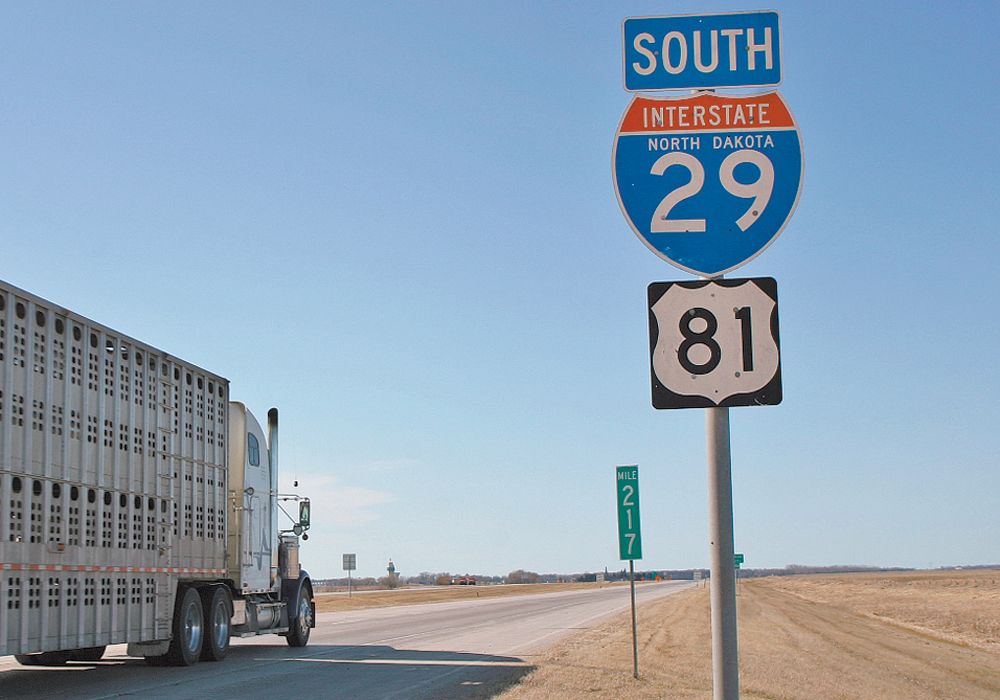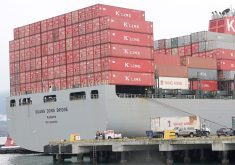May 18, 2015, was a significant day for Canada’s beef and pork producers. On that date, the appellate body of the World Trade Organization issued a final ruling in favour of Canada.
The WTO judges said America’s country of origin labelling rules on red meat discriminated against imports from Canada and Mexico.
That sort of favourable decision may not happen again any time soon.
On Dec. 10, the WTO appellate body essentially ceased to exist.
It could have a massive impact on smaller countries like Canada, which rely upon the WTO to enforce the rules of global trade.
Read Also

Crop quality looks good this year across Prairies
Crop quality looks real good this year, with the exception of durum.
“In the absence of a fully functioning dispute-settlement system, the World Trade Organization simply cannot do its job of protecting the rights of Canadian exporters and importers,” said a coalition of business groups, including the Canadian Agri-Food Trade Alliance and the Canadian Chamber of Commerce.
The appellate body comprises three judges. They rule on trade disputes when a country appeals the decision of a lower-level court at the WTO.
“(It) is effectively the last court of appeal in trade disputes,” the Canadian business groups said.
The WTO is also concerned.
“A well-functioning, impartial and binding dispute settlement system is a core pillar of the WTO system,” said WTO director-general Roberto Azevêdo. “(It) prevents trade conflicts from ending up in escalating tit-for-tat retaliation, which becomes difficult to stop once it starts.”
The WTO appellate body is no longer functional because it only has one judge. The terms of two other judges ended Dec. 10 and they have not been replaced.
The WTO operates under a consensus. For about five years, the U.S. has refused to consider any new judges, so the number of judges available to serve on the appellate body dropped to one.
Many analysts blame this on U.S. President Donald Trump, who is hostile to multinational groups like the WTO.
But America’s stance on the WTO is much bigger than Trump, says a University of Manitoba agricultural economist.
“The U.S. for years … including under the Obama administration, has been blocking new appointments,” said Ryan Cardwell, who spoke to The Western Producer from Washington, D.C. “The U.S. view … is the appellate body has taken on more of a court (role) … where they are setting precedents.”
In cases like COOL, where the appellate body ruled against the U.S., the precedents could apply to future WTO disputes.
Other trade experts believe U.S. opposition to the WTO appellate body is linked to Robert Lighthizer, the U.S. Trade Representative.
“(Lighthizer) was nominated in 2003 to serve as an appellate body member, but WTO members chose a different candidate,” the Washington Post reported. “He has since sought to prevent an erosion of America’s sovereignty due to membership in the WTO.”
Cardwell, who specializes in international trade, disagreed with that analysis. The appellate body, and its role, is in a power battle between the U.S. and Europe.
The Europeans, he said, are satisfied with the status quo and the Americans want to reform the WTO dispute resolution process.
Without the appellate body, disputes before the WTO will likely grind to a halt.
As an example, Canada has initiated a WTO complaint against China over China’s ban on canola seed imports from two Canadian companies. If Canada won the case, the Chinese would likely appeal. If there is no appellate body to hear the case, then nothing happens and the dispute is in limbo.
For a while, Canada and Europe have been working on an alternative to the appellate body.
“Canada has been leading efforts among like-minded partners to preserve a rules-based settlement system until the full functions of the WTO appellate body can be restored,” said Mary Ng, Canada’s minister of small business and international trade.
If such a court is created, it would only apply to WTO countries that agree to participate. The U.S. would likely refuse.
Another possibility, to resolve trade squabbles, is using the dispute resolution mechanism in the new United States-Mexico-Canada Agreement (USMCA) and in Canada’s other free trade deals.
As for the future of the appellate body, nothing will happen until the Americans and Europeans are willing to compromise, Cardwell said.
The problem may persist well past the 2020 U.S. presidential election because some Democrats are also hostile to the WTO, Cardwell said.
So, it could take years to solve?
“Certainly,” he said. “Everything to do with the WTO drags on for years.”


















